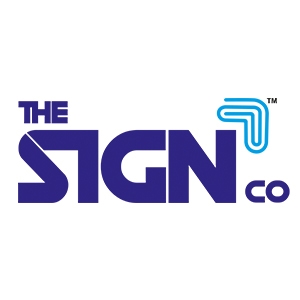In today's competitive marketplace, establishing a strong brand presence is essential for businesses seeking to attract and retain customers. A crucial component of this presence is effective branding signage design. Signage plays a vital role in conveying a brand's identity, values, and message, serving as a visual representation that can influence customer perceptions and experiences. This article explores the significance of Branding Signage Design, its key elements, best practices, and how businesses can leverage signage to enhance their overall branding strategy.
Why Branding Signage Design Matters
1. First Impressions Count
Signage is often the first point of contact between businesses and potential customers. A well-designed sign can create a positive impression and invite customers to engage with the brand. Conversely, poor signage can deter potential customers and reflect negatively on the business.
2. Brand Recognition and Consistency
Consistency in branding is crucial for building recognition and trust. Effective signage reinforces brand identity through consistent use of colors, logos, typography, and messaging. This consistency helps customers easily identify the brand, fostering loyalty and familiarity.
3. Directional and Informational Support
Signage serves a dual purpose: it not only promotes the brand but also provides essential information and guidance to customers. Well-placed directional signs help customers navigate spaces, while informational signage communicates important messages, such as operating hours, promotions, or services offered.
4. Enhancing Customer Experience
Thoughtfully designed signage contributes to a positive customer experience by making environments more accessible and user-friendly. Clear and visually appealing signs can reduce confusion, enhance understanding, and improve the overall ambiance of a space.
Key Elements of Effective Branding Signage Design
1. Logo and Brand Identity
A company’s logo is the cornerstone of its branding. It should be prominently featured on all signage to create instant recognition. The design should align with the overall brand identity, reflecting the business’s values, mission, and target audience.
2. Color Scheme
Colors evoke emotions and convey messages. When designing signage, it is important to incorporate the brand’s color palette to maintain harmony with other marketing materials. Additionally, contrasting colors can enhance visibility and readability.
3. Typography
The choice of fonts plays a significant role in signage design. Typography should align with the brand’s personality, whether it’s modern, playful, classic, or formal. The text must be legible from a distance, and varying font sizes can help emphasize key messages.
4. Graphics and Imagery
Incorporating graphics and imagery can make signage more engaging and informative. However, these elements should complement rather than overshadow the main message. Visuals should be relevant to the brand and resonate with the target audience.
5. Material and Finish
The materials used for signage can impact the overall aesthetic and durability. Businesses should consider the environment in which the signage will be displayed (indoor vs. outdoor) and select materials that withstand wear and tear, weather conditions, and maintenance needs. Finishing options like matte or gloss can further enhance the visual appeal.
For more details, visit us:
Outdoor Digital Signage Manufacturers





Comments